Mobility
In the automotive sector, electromobility is one of the major topics currently occupying manufacturers and suppliers. The increasing use of assistance systems in vehicles, the networking and internet connection of vehicles and the development towards autonomous driving form another major future field with completely new legal issues. The digitalisation and networking of production, described by the buzzword Industry 4.0, will change the cooperation between car manufacturers and automotive suppliers.
The cramped traffic and parking space situation in inner cities and metropolitan regions poses growing challenges for the public sector and makes the expansion of the transport infrastructure inevitable. Public transport must meet increased user expectations, especially with regard to network coverage, accessibility and passenger information. Rail transport is facing growing competition from buses. Traffic guidance systems and networked traffic management are gaining in importance, as are user-financed management models, especially of roads and parking spaces.
Accelerated by the change in people's mobility behaviour, the development of new concepts for the intelligent linking of classic transport structures is progressing in leaps and bounds. Successful examples include sharing concepts for cars and bicycles or the provision of ride-sharing, parking, transport and taxi services. At the same time, the collection and processing of traffic information in large quantities and in real time raises new questions about the ownership, protection and security of "big data".

How can we be of assistance?
Today, electromobility is one of the major issues concerning manufacturers and suppliers in the automotive industry. The increasing use of assistance systems in vehicles, interlinkage and Internet connectivity of vehicles, as well as the push towards autonomous driving are other key topics for the future, bringing with them a host of new legal issues. The digitization and networking of production, generally referred to as ‘Industry 4.0’, is set to drastically change the cooperation between vehicle manufacturers and suppliers.
Meanwhile, the large number of vehicles and the lack of parking in inner city areas and metropolitan regions mean public authorities are facing growing challenges, making the expansion of transport infrastructure even more crucial. Public transportation also needs to meet increased user expectations, in particular in terms of network coverage, accessibility and passenger information. Rail transport is facing growing competition from buses. Traffic control and networked traffic management systems are gaining importance, as are user-financed management models, particularly for roads and parking.
Accelerated by the changes in people’s mobility behaviour, the development of new concepts as to how to intelligently link traditional transport structures is progressing in leaps and bounds. Some successful examples include sharing concepts for cars and bikes or the provision of car-sharing, parking, transport and taxi services. However, the collection and processing of traffic information creates a large number of real time issues concerning the ownership, protection and security of “Big Data”.
- Corporate Law
- Corporate Transactions (Mergers & Acquisitions)
- Energy Law
- General Contract Law
- Information Technology and Internet Law
- Litigation and Arbitration
- Product Liability Law and Quality Assurance
- Public Law, Environmental Law, Public Building and Planning Law
- Public Procurement
- Transport and Forwarding Law





